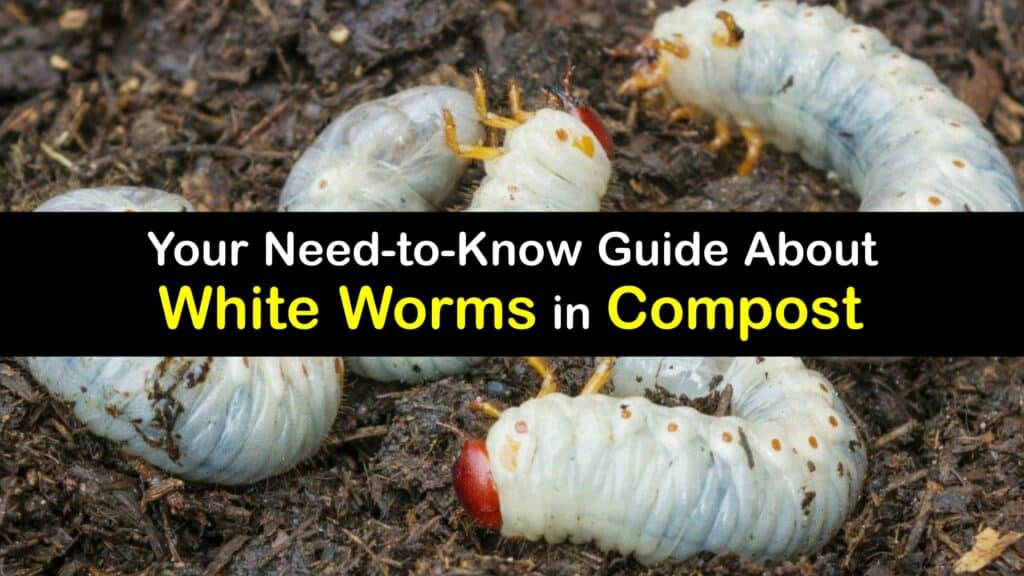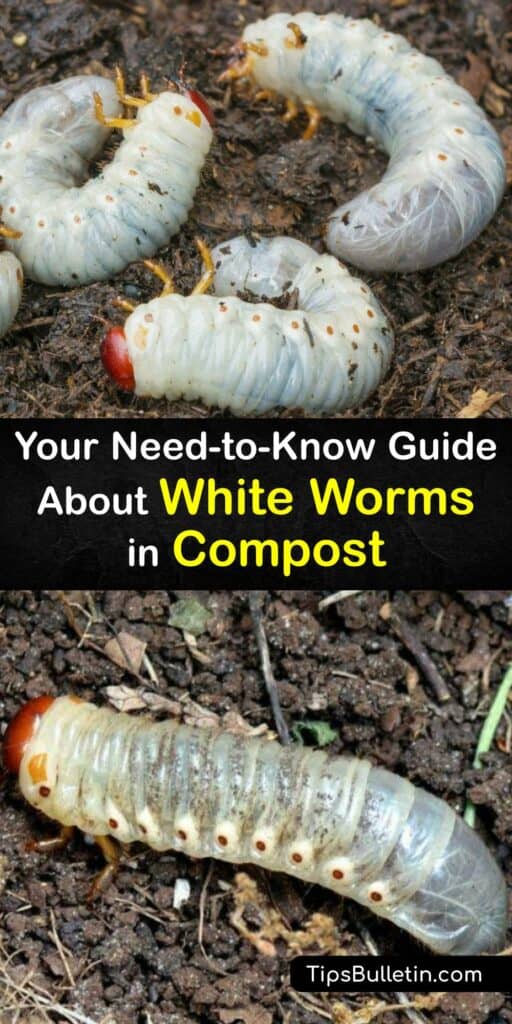Discovering white worms in your kitchen waste compost is startling, and it may even seem like you have a worm infestation. While it’s typical to see worm castings when vermicomposting in a worm farm, you don’t expect them in a compost bin. So, what is that small clear worm in compost?
Food waste draws the fungus gnat, fruit fly, beetle, flies, and other insects to the compost pile. While a few maggots break down the organic matter, an excessive amount is a problem. Sometimes, they lay eggs and larvae in the organic material.
Small clear worms are different, as they are relatives of the earthworm family. They thrive in high moisture, low pH, and organic conditions, so it’s no wonder you find them in the compost heap. While they look creepy, wiggling around in the compost, fly larvae in a compost bin are harmless and beneficial to the soil.

Small White Worms and the Composting Process
We’re all familiar with red wiggler worms when worm composting since the red wiggler is a popular worm type for earthworm castings or compost. The composting worms turn food scraps, leaf litter, and yard waste into finished compost for the lawn and garden. But, what are pot worms, and are they good for the compost or worm bin?

It’s normal to find white worms in compost and generally not anything to be concerned about when composting. Learn what this white worm is and whether or not it is helpful to the worm composter or compost pile.
Is a Small Clear Worm in Compost Bad?
Seeing clear white worms in soil is one thing, but finding them in the bedding material of the compost pile is understandably disturbing. Discover what these worms are and if they are bad for composting. If they are a pest, discover a natural worm killer with diatomaceous soil and other non-toxic solutions.
Clear Compost Worms
Unlike the red worm (Eisenia fetida) that you add to worm compost, worm factory, or compost pile when vermicomposting, clear worms find their way into your compost pile on their own. Moisture and organic ingredients draw them to the bin, especially if you add acidic and starchy food. They are not bad for compost but indicate that the pH level is not neutral.
What Are Pot Worms?
What are pot worms, and are they harmful to compost? A pot worm is a small, white or clear worm. It is common in the soil and organic material and is not detrimental to compost.
You probably have pot worms (Enchytraeids) if you notice small translucent worms in soil. They are segmented worms, a quarter of an inch to an inch long, and generally clear or white.
Pot worms got their name when they were initially discovered in the dirt and plant roots of potted plants. They also enjoy the conditions offered in a compost pile and eat acidic, organic material, similar to small bugs in your potting soil. Composting pine needles and high-acid food scraps, like tomatoes, citrus, and onions, attracts them to the pile.
The Advantages of White Worms in Compost
It’s easy to forget that worms benefit the environment as we watch them wiggle and squirm through the ground. Explore the advantages and disadvantages of having white worms in compost and how they assist the overall process.
Like the nematode and earthworm, pot worms are an organism that eats waste in the soil and compost heaps, turning scraps into fertilizer. In addition, they aerate the material, which helps faster decomposition.
If you have too many white worms and fear an infestation, stop adding acidic foods to the heap, and lower the amount of moisture in the compost. It’s also essential to control the pot worm population if you have worm compost since red worms do not tolerate acidity.
Composting is a natural process that turns waste into useful material. Creating a rich, finished compost or worm tea takes time and effort. It’s understandable to feel alarmed when discovering white worms in the material. Luckily, those worms are beneficial as they help break down the organic matter.

Now that you know what that small clear worm in compost is, why not share our pot worm information with your friends and family on Pinterest and Facebook?